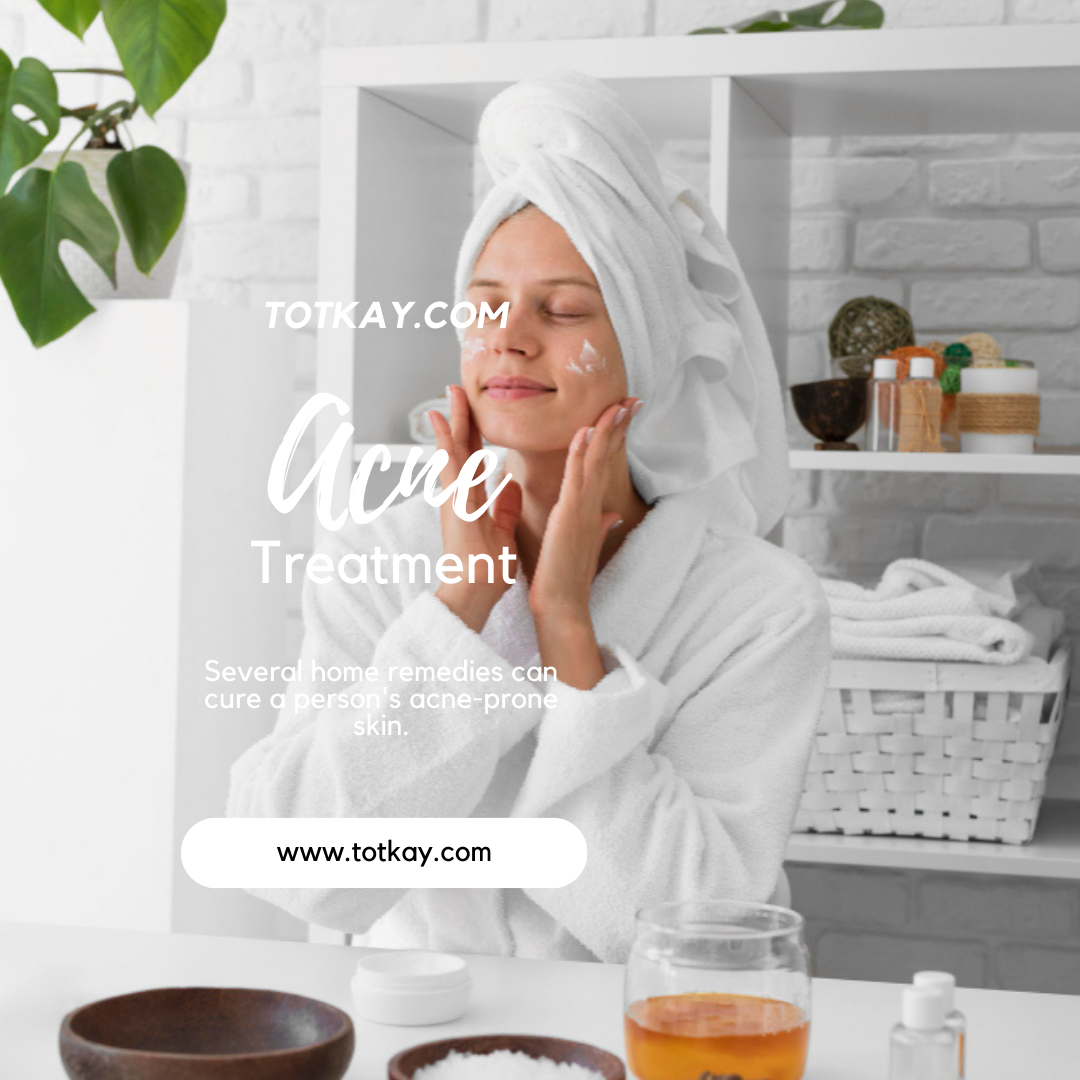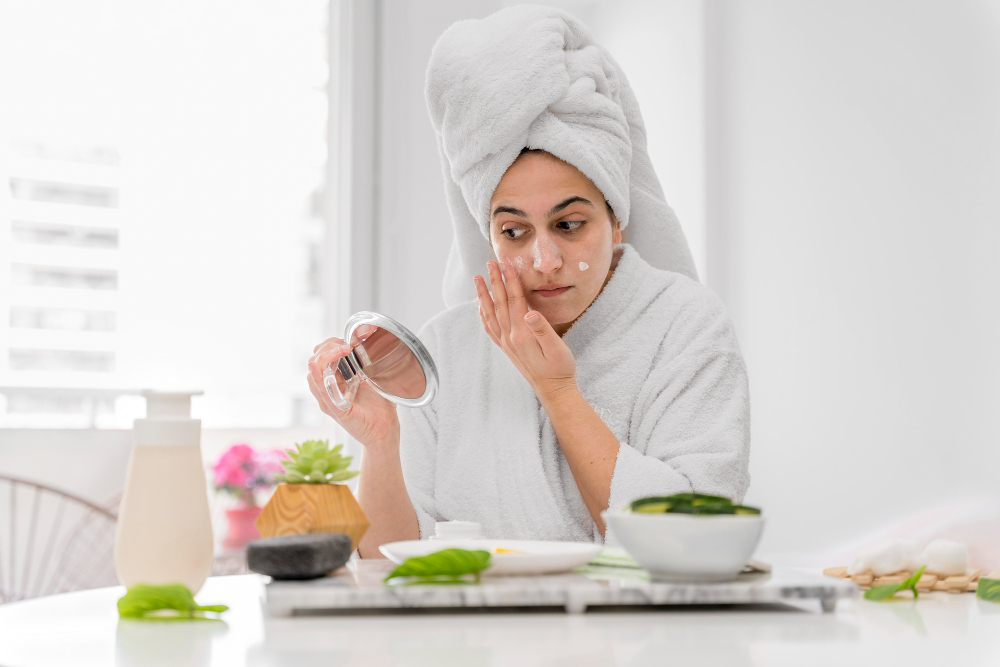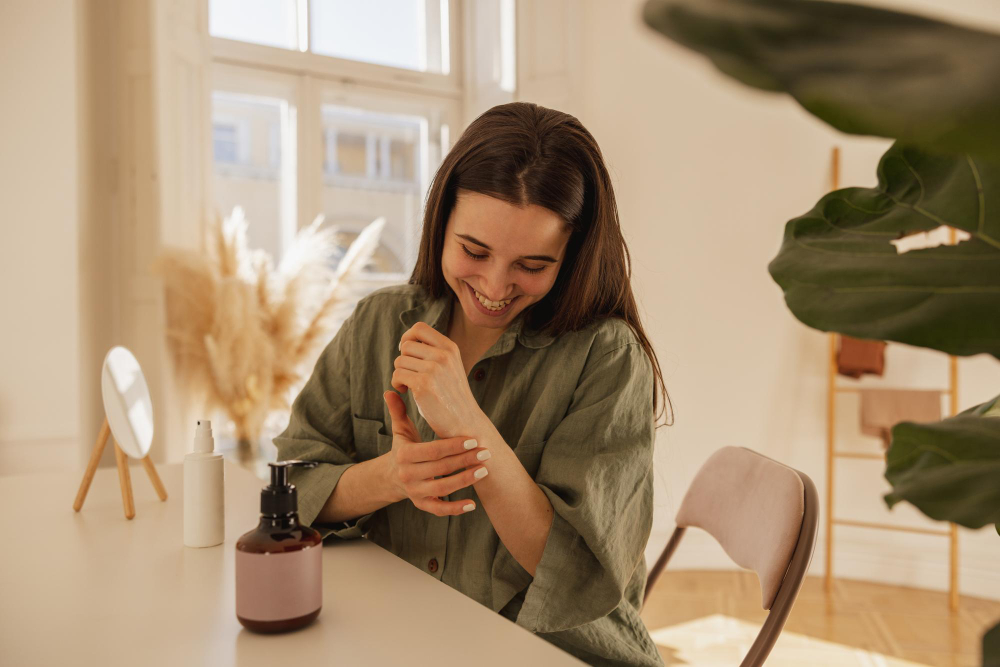Top 10 Home Remedies For Acne-Prone Skin

Several home remedies can cure a person’s acne-prone areas. Herbal creams and gels, essential oils, nutritional supplements, and lifestyle modifications are examples of home remedies for fighting acne.
When pores get blocked or infected with germs, acne starts to appear. You can try home remedies for acne to regulate the skin’s oil production, lessen swelling, eradicate bacteria, and stop acne recurrence.
In this blog, we are going to discuss the main causes of acne and ten home remedies for acne-prone skin that work!
Causes of acne
Acne is a term named for hypersensitivity of the sebaceous glands present in the skin. Several elements like bacteria, hormones, and skin inflammation, can cause acne lesions on your skin. Here are some of the main causes of acne formation:
- Certain medications can cause acne on your skin: lithium, steroids, anticonvulsant
- Restrictive clothing can also play a great role in causing acne: shoulder pads, backpacks, underwire bras, headbands
- Several endocrine disorders can also be the major cause: polycystic ovarian syndrome (PCOS)
- Sometimes, acne-prone skin is because of genetics: inherited from family
Home remedies for acne-prone skin:
Some of the most popular home remedies to treat acne include natural herbal extracts. Here, we will discuss the best home treatments to treat acne:
Before using a topical remedy directly on the skin, consult a dermatologist or perform a patch test on the wrist or hand and observe the skin for reactions.

1. Tea tree oil
Tea tree oil contains anti-inflammatory as well as antibacterial properties, which might kill the bacteria that cause acne on your skin.
The anti-inflammatory properties of tea tree oil help reduce the swelling and redness of pimples.
Tea tree oil products can also reduce the number of acne scars on your skin because of their antimicrobial capabilities.
How to use tea tree oil
People can apply tea tree extract in creams, gels, or essential oils to their acne. However, tea tree oil can cause allergic reactions in some individuals, and it suggests people use tea tree essential oil products under 5% concentration to avoid skin irritation.
You should consult a healthcare professional or do a patch test before you apply essential oils to your skin.
2. Aloe vera
Due to its inherent antibacterial and anti-inflammatory properties, aloe vera may lessen the appearance of acne and prevent breakouts.
Aloe vera is a fantastic skin moisturizer, including amino acids, sugar molecules, and zinc. People with dry skin after using other anti-acne solutions should especially consider it.
Aloe vera and soft mask remedies reduce the number of pimples, lesions, and dry skin.
How to apply aloe vera gel
Clean the acne scars gently, then apply a thin aloe vera gel on your acne-prone areas twice daily.
3. Honey
Honey has specific antimicrobial effects. For thousands of years, honey has been used for skin conditions because it contains many antioxidants that can help to clear clogged pores.
How to use honey
Rub a little honey into pimples using a clean finger or cotton pad. Otherwise, you can also add a few drops of honey to a face or body mask.
4. Green tea
Higher concentrations of catechins are present in the green tea. Catechins are a class of polyphenol antioxidants.
Some acne sufferers have too much sebum (natural body oils) and insufficient antioxidants in their pores. The body breaks down chemicals and waste materials that can harm healthy cells with antioxidants.
Green tea also contains components that may help to:
- Reduce the sebum production in the skin
- Reduce P. acnes
- Reduce inflammation
How to use green tea
An individual can drink or put green tea extract on their skin. Research shows that using polyphenol green tea extract for eight weeks reduces 79–89% of white and blackheads.
You can find green tea at some health stores or online.
5. Coconut oil
Like other natural remedies, coconut oil also contains antibacterial and anti-inflammatory properties in its compounds.
Coconut oil can also help you eliminate acne-causing bacteria and reduce the redness and swelling on acne-prone areas. Due to its moisturizing and soothing effects, it speeds up the healing of open acne sores.

How to apply coconut oil
Use pure, virgin coconut oil and rub it directly dead skin, on the acne specifically.
Lifestyle changes to improve skin health
Along with home remedies for acne treatments, specific lifestyle changes can help keep your body healthy by making your skin less oily and reducing acne breakouts.
6. Don’t touch pimples
Touching acne sores irritates the skin. It may worsen the pimple and spread spots to other areas of the skin.
Touching, squeezing, or popping acne sores can also invite more bacteria into the lesion. As a result, it causes further infection and make acne scars. Squeezing a pimple can force bacteria and other debris deeper into the skin, making the place worse than it was initially.
For more information on how to treat large sores safely or those deep under the skin, please consult a doctor to avoid acne scars.
7. Choose the right cleanser
Many regular soaps have very high pH. They can irritate the skin, worsening the acne-prone and oily skin.
Choose mild cleansers or soaps to treat acne and heal the acne scars.
8. Use oil-free skincare
Products that are oil-based or greasy may block pores, increasing the possibility of clogging and spreading acne lesions.
Look for cosmetics and skincare items that are “oil-free” or “noncomedogenic,” as these products contain chemicals that help pores to breathe.
9. Stay hydrated
Dry skin has a higher risk of irritation and damage, which may lead to acne. Staying hydrated also helps that as wounds heal, new skin cells form properly.
Since each person’s water requirements differ based on their age, activity level, climate, and medical problems, there is no set daily recommendation for water consumption. Thus, on average, drinking 7 to 8 glasses of water can keep your skin fresh and clear.
Concentrating on drinking more water during the day is a good starting point.

10. Reduce stress level
Stress can also be a possible cause of acne formation. Stress can increase the level of the androgen hormone
Androgen hormone actively stimulates hair follicles and oil glands in pores, thus increasing the risk of acne.
Here are the following tips for managing stress:
- Conversation with family, supportive friends, or a doctor
- Get enough sleep, almost 8 hours a day
- Eat healthy to maintain a balanced diet
- Exercise regularly, almost five days a week
- Limit your alcohol and caffeine consumption
- Practice deep breathing, yoga, and meditation
Medical treatments for acne-prone skin
There are many medical acne treatment and options for acne-prone skin, and many of them are highly effective. However, some of them can have side effects and may not suit everyone.
People can consult a dermatologist about whether medication or medicinal creams are right for them, primarily if home remedies have yet to work.
Salicylic acid, alpha hydroxy acids, and benzoyl peroxide are some active ingredients to treat mild to moderate acne. Consult a doctor if your acne gets painful, infected, deeper, or becomes resistant to home remedies.
A person with acne may occasionally benefit from seeing a doctor due to its underlying reasons. For instance, home remedies for moderate to severe acne sometimes could not work when acne develops as a result of hormonal imbalance or an allergic reaction, which might result in more serious diseases.
Hormonal acne
Hormonal acne occurs from a hormone imbalance. It can typically occur from foods containing hormones, premenstrual flare-ups, stress hormones, and Polycystic ovarian syndrome (PCOS).
With each type of hormonal acne, a doctor may suggest potential treatments or strategies to prevent acne flare-ups.
Allergic acne
Since acne is rarely irritating, itching may be a sign of another disorder that resembles acne.
Hives and allergic dermatitis, for instance, resemble the signs of acne brought on by an allergy to particular foods, medicines, or skin care products. As a result, allergic responses might result in serious symptoms that call for medical intervention.
Dermatitis herpetiformis, which can result from gluten sensitivity, can cause blisters and a pruritic rash on sensitive skin that can resemble acne. It may be required to alter one’s diet and take drugs to treat gluten sensitivity symptoms.
The Final Words:
There are numerous home remedies for acne available. However, not every home remedy for treating acne will be effective in every patient or situation. You can opt for the highly suitable treatment from above-mentioned ten home remedies for treating acne.
Before utilizing natural home remedies for acne for severe, persistent, deep, or painful acne lesions, always consult a doctor. In the same way, discuss minor acne sores with a doctor if they worsen or don’t improve after receiving primary care.
Visit Totkay.com for more home remedies for skin whitening hands and feet, hair care, and other health problems that you can easily solve at home.

Hi, I’m a dedicated writer at Totkay.com, passionate about sharing practical tips and solutions to make your life easier. Explore my articles for helpful insights and valuable advice. Stay connected for more expert content!






